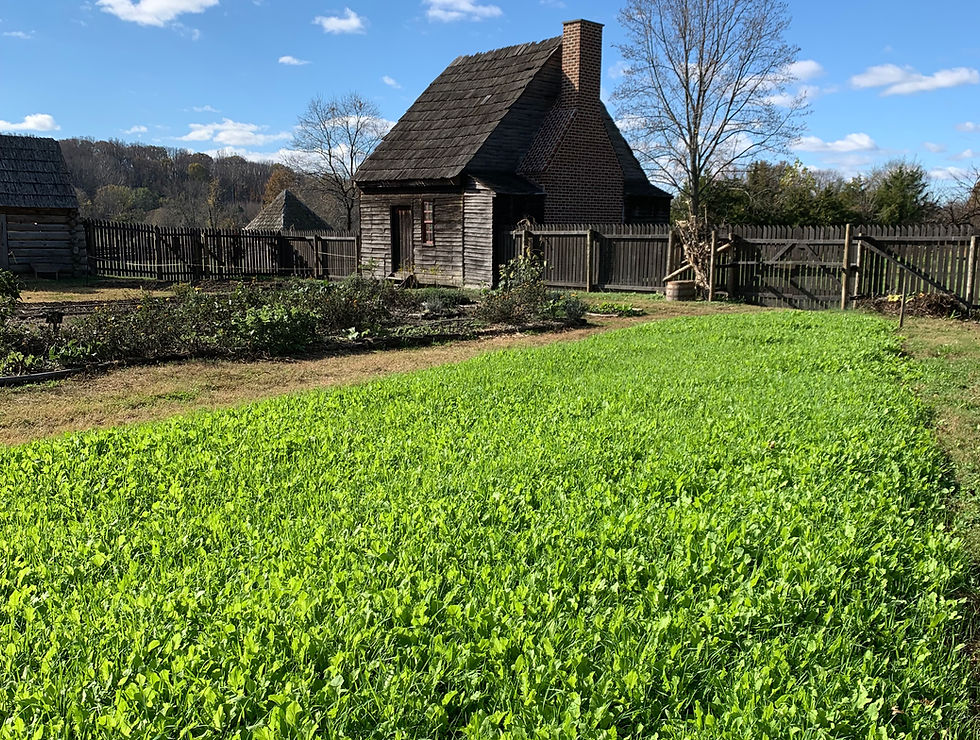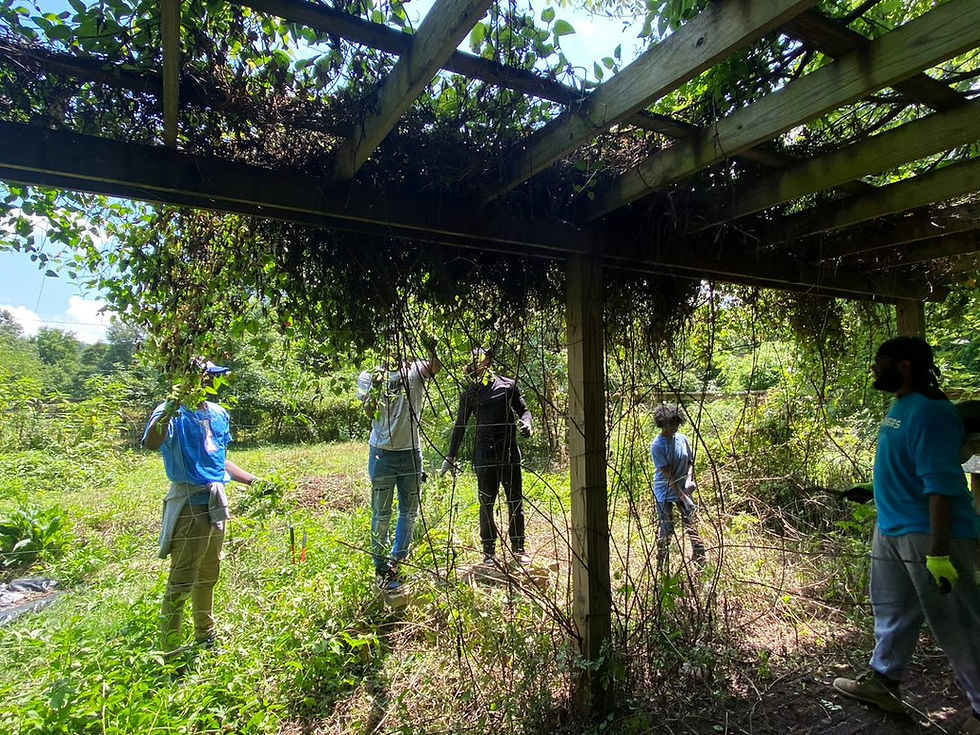Field Notes: Volume 16, Number 8
- Accokeek Foundation

- Jun 24, 2011
- 3 min read

This Week’s Harvest
Green Garlic
Green Onions
Beets
Cabbage
Summer Squash
Cucumbers
Tomatoes
While we strive for consistency at the Ecosystem Farm, we ask that our SHAREholders please keep in mind that Friday and Tuesday harvests will not always be the same.
For your convenience, an exact harvest list will be posted in the packing shed.
This past week has been a busy one at the Ecosystem Farm. While Jose is in Shawnee, Oklahoma, at the Rural Coalition/Coalicion Rural National Rural Gathering, the rest of the farm staff has been hard at work while the days are long. The calendar summer has been welcomed with weed-wrangling and ever more plantings, as well as the addition of three new part-time farmhands—mother and daughter duo Terri and Molly, and Keely—all of whom have close ties to this land. Terri worked on the Ecosystem Farm years ago, alongside Keely’s mother; now, the two daughters are enjoying the unconventionality of the summer job that their mothers once (and in Terri’s case, once again) had.
The heat of the summer is still rising, but the staff has started to sow fall brassicas into flats. Cool-weather loving vegetables like cauliflower, broccoli, and brussels sprouts will grow up in the late summer and be harvested in the fall. But in the meantime, we have high-summer delights to look forward to: tomatoes and peppers; beans and basil; squash and melons; and what we hope will be a huge crop of garlic, to be pulled out of the ground this weekend.
Up Close With Cabbage
The cultivated cabbage, descended from a native of the Mediterranean and northern European coast, has been around for thousands of years. According to Rebecca Rupp in her book Blue Corn and Square Tomatoes, the Romans adored this “vegetable of status”: Emperor Claudius “once convoked the Senate to vote on whether corned beef and cabbage was the best of all possible dinner dishes. (The senators, no fools, voted a unanimous yes.).”
Heading cabbage first crossed the Atlantic Ocean in the 1540s, and over the course of the next century, became a staple of the colonial garden. But by the late nineteenth century, cabbage popularity took a turn for the worse. Writes Rupp: “Its banishment from the best kitchens was due to cabbage b.o., the penetratingly unpleasant smell generated in cooking.”
But the cabbage has retained its popularity with us. The vegetable can be steamed, baked, braised, sauteed, or stuffed, as well as eaten raw. It can be kept in the refrigerator for up to one or two weeks.
Reminder
To cut down on cost and waste, please return boxes and other packaging materials to the Ecosystem Farm for reuse. Much appreciated!
Below, photos from this week on the Ecosystem Farm. Click images to enlarge, or view them on Flickr.
This Week’s Recipe: Sweet ‘n Sour Cabbage
Recipe from A Veggie Venture
1 tablespoon bacon grease, olive oil, or other fat
1/2 onion, chopped
1 pound cabbage, chopped into 1-inch pieces
1 tablespoon flour
1 tablespoon sugar
1/4 teaspoon ground caraway
1 cup milk
2 tablespoons white wine vinegar
Salt and pepper to taste
Directions:
In a large skillet over medium high heat, heat bacon grease or other fat until shimmery. Add onion and cabbage, stirring well to coat with fat. Cook until soft, stirring often.
Sprinkle cabbage with flour, sugar, and caraway. Stir to coat; let cook for one to two minutes. One tablespoon at a time, add the milk, stirring in each tablespoon before adding another. Stir in the vinegar. Stir in salt and pepper to taste. Let cook for another five to ten minutes; serve.
Upcoming Events
Film Series: The Plow That Broke the Plains and The River: Tuesday, June 28, 2011 (Recurring, Fourth Tuesdays), 6:30 to 8:30 p.m., Education Center: Come see stories of sustainable agriculture and environmental conservation unfold on the silver screen. This month, we will show two short films. First, The Plow That Broke the Plains, a 1936 film that explores the factors that led to the formation of the Great Plains Dust Bowl. Second, The River, from the following year, which documents the growth of trade and travel along—and subsequent weakening of—the Mississippi River. Light refreshments will be served.
Local Food Forum: Tuesday, July 5, 2011 (Recurring, First Tuesdays), 6:30 to 8 p.m., Education Center: The Local Food Forum is a monthly meeting of producers and consumers interested in local food. Join us to discuss locally-grown fruits, vegetables, eggs, and meat—from where to find them to how to make them more available. For more information, and to receive updates about the Local Food Forum, please email caes (a) accokeek (dot) org.







